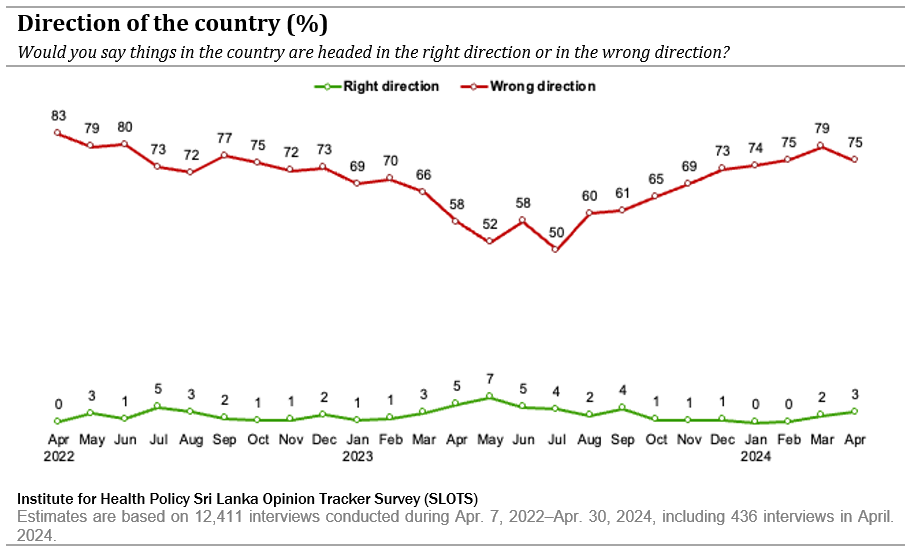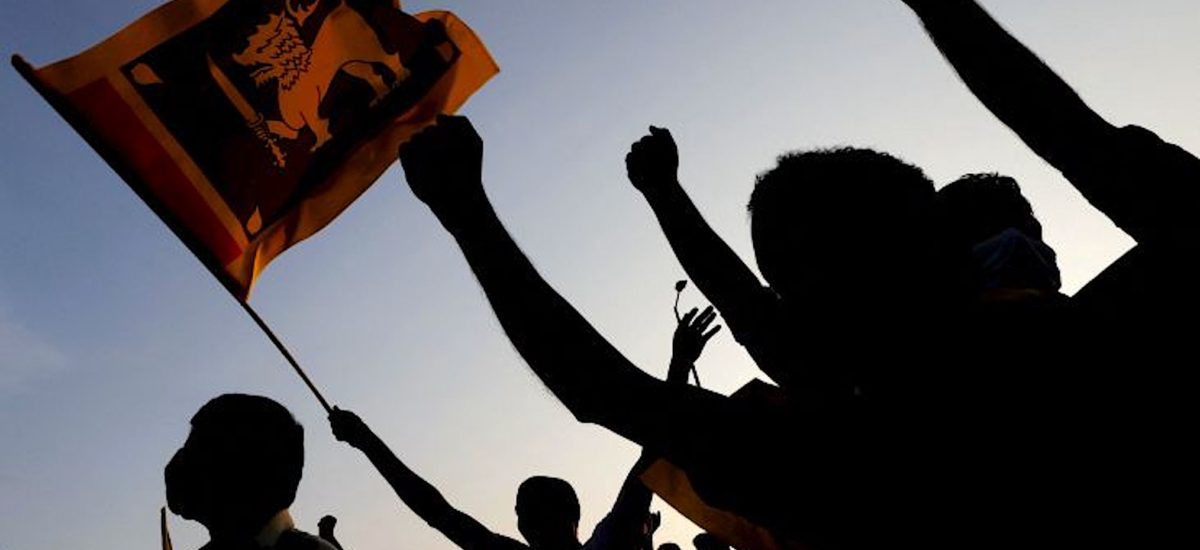Photo courtesy of Al Jazeera
Three out of four Sri Lankan adults (75%) said that the country is heading in the wrong in April 2024 while almost none (3%) said it was on the right track. The number of people who say the country is heading in the right direction has remained very low (less than 10%) since SLOTS started polling this in early 2022. This is more than in any other country with similar polling.

Comparison of Institute for Health Policy (IHP) SLOTS estimates for Sri Lanka with other countries shows that Sri Lankans are more likely to think the country is headed in the wrong direction than in any other country. In March-April 2024, a global average of 64% of adults polled in 29 countries by Ipsos thought their country was headed in the wrong direction compared with 96% in Sri Lanka. Sri Lanka’s estimates for this comparison were adjusted by excluding don’t knows and refusals from the denominator when computing the percentages to ensure comparability with the Ipsos estimates for other countries.
These negative views are widely held with little difference by gender, income level, urban and rural areas, voting preferences and people’s views of aragalaya. But younger Sri Lankans have been increasingly more likely than older adults to say the country is on the wrong track.
But as the country heads closer to elections, such consensus about the country’s wrong trajectory does not appear to imply any consensus about the reasons. Negative views about the country’s direction differ little by voting preferences and views of the aragalaya, indicating that the public agrees that the direction of the country is not good but disagrees about why.
The April 2024 estimates are based on 436 interviews, with estimates adjusted to match the Sri Lankan population for age, sex, education level, socioeconomic status, ethnicity, religion, geographical location and sector.
SLOTS polls the public’s outlook on the overall direction of the country by asking people: “Would you say things in the country are headed in the right direction or the wrong direction?”. Respondents are also allowed not to answer or to say they “Don’t know” or are “Not sure”. The percentages saying the country is moving in the right or wrong directions is based on all those who were interviewed so numbers for right and wrong tracks will not sum to 100% because of don’t knows and refusals.
To minimize sample bias, estimates are based on weighting respondents to match the national population for age, sex, sector, ethnicity, religion, education, socioeconomic status ranking and geographical location.

